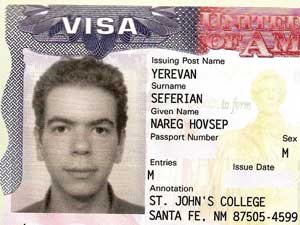When I came to the United States, I was barely fluent in spoken English, although on paper I seemed competent in the language. In fact, it turned out the English I had learned over the course of my middle and high school years was quite different from American English.
When you’re not comfortably fluent in the language of your “new home,” a casual chat can rapidly turn into a rollercoaster of confusing words. I could barely even understand the information that the immigration officer told me when I landed in the U.S.
Now, after two years, I can proudly say that my English is lot better than it used to be, although I’m still trying to improve my speaking skills. To get there, I had to understand that assimilating to a language is an art. You have to feel it, visualize it, and experience it yourself. It’s an art that you create, not that you learn. Here are the four ways in which I have crafted my own art of fluency.
1. The Craft of Listening
Have you ever heard of leeches? There are slimy and tiny worm-like organisms that can suck human blood without even getting noticed. A leech will absorb as much blood as it pleases, and then instinctively lets go and begins its well-deserved digestion break.
I know, you must be wondering why I would talk about leeches in an article about learning English. But actually, those little creatures can teach us a lot about the approach to take when learning English. If you really want to be comfortable with daily spoken English, you have to start absorbing the language as much as you can.











 Phillip Dube
Phillip Dube Student Visa Tips From Visa Officers
Student Visa Tips From Visa Officers What is the Best University in America?
What is the Best University in America? 5 Stories That Might Change How You See the World
5 Stories That Might Change How You See the World On Being an African in the US: Navigating an Endless Set of Stereotypes
On Being an African in the US: Navigating an Endless Set of Stereotypes Financial Aid Tips from Admissions Officers
Financial Aid Tips from Admissions Officers Don't Study in the US: A Look at the Pros and Cons
Don't Study in the US: A Look at the Pros and Cons Take a Tour Around my Typical American Dorm Room
Take a Tour Around my Typical American Dorm Room Why a Weak SAT Score Didn’t Kill My College Dreams
Why a Weak SAT Score Didn’t Kill My College Dreams Why Aren't Americans and International Students Becoming Friends?
Why Aren't Americans and International Students Becoming Friends? Why You Will Gain 10 Pounds in America (and How to Lose it Again)
Why You Will Gain 10 Pounds in America (and How to Lose it Again)